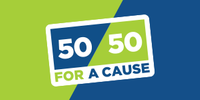The Saskatchewan government announced Thursday that it will no longer supply pipes for smoking meth, crack, and other illicit drugs.
The province will also discontinue providing materials on how to use illicit drugs.
Third-party organizations will not be permitted to use funding from the Ministry of Health or the Saskatchewan Health Authority for those purposes.
"Providing taxpayer-funded pipes for smoking illicit drugs and instructions for how to use them sends the wrong message to people who we want to help," said Mental Health and Addictions Minister Tim McLeod. "Instead, the message coming from the health care system should be that there is hope for recovery, and there is help available through treatment."
The province's news release cited an announcement from the fall of 2023 that their new Action Plan for Mental Health and Addictions will add at least 500 more addictions treatment spaces to the publicly-funded health care system to double its treatment capacity.
So far, 168 treatment spaces have been announced, including 26 post-treatment spaces at St. Joseph's Addiction Recovery Centre in Estevan, 32 intensive outpatient treatment spaces through Possibilities Recovery Centre in Saskatoon, 36 virtual treatment spaces through EHN Canada, 14 inpatient treatment spaces at the former Drumming Hill Youth Centre facility in North Battleford, and 60 inpatient treatment spaces through EHN Canada near Lumsden.
"The goal of the health care system should always be getting people the treatment they need to overcome addictions and live healthy, safe lives in recovery," McLeod said. "How the health care system responds to people who have yet to walk the path to recovery needs to strike a balance with public safety priorities."
The province will continue to provide free naloxone through the Take Home Naloxone program.
The release said than 40,000 people have been trained to use naloxone, and nearly 10,000 overdoses have been reversed by members of the public with naloxone acquired through the program, which was introduced in 2015.
The province will continue to provide test strips for fentanyl and benzodiazepine contamination, and continue the use of drug-checking infrared spectrometres.
The new Provincial Drug Alert System was introduced last week.
"To strike a balance with public safety priorities, needle exchanges will be required to operate on an exchange basis," said the release. "Getting back used needles that can be littered in communities or otherwise improperly disposed of is a core purpose of needle exchanges. The other core purpose is to reduce the spread of bloodborne illnesses such as HIV and hepatitis C to avoid pressure on the health care system that can result from the spread of bloodborne illnesses."
The province also said it is planning new Community Wellness Buses for 2024 to help support people struggling with addictions and other at-risk people. They are intended to provide primary health care services, assistance with accessing services and supports, and referrals for other services that they may need.
The province said savings from the immediately-effective changes will be redirected to enhancing needle pickup services.













